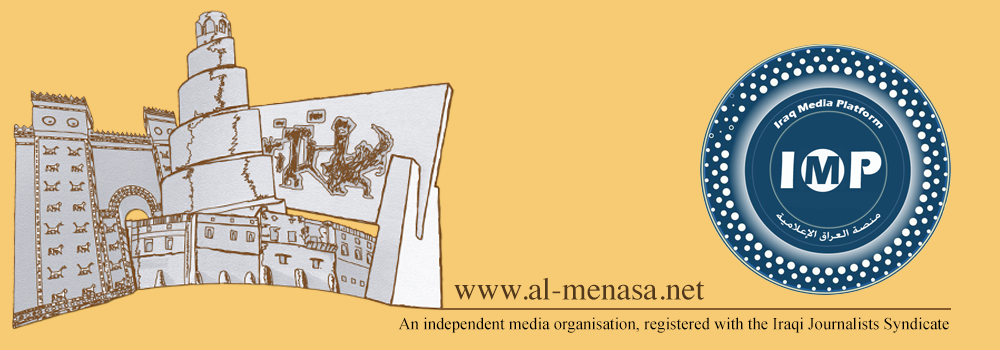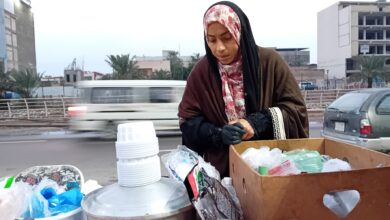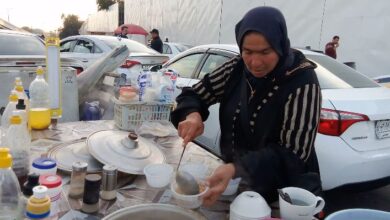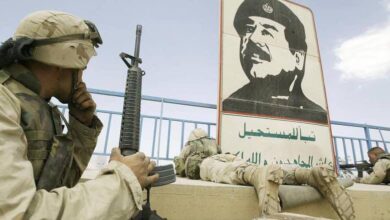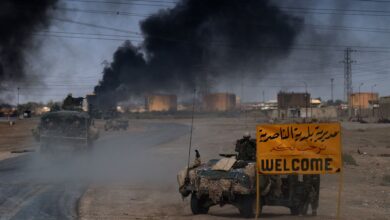ARMS RACE: Iraqi tribes using heavy weapons in local conflicts

Last May, just as the Ramadan holiday was about to end, all hell broke loose in the Ur district of Dhi Qar province.
By Alaa Kouli, in Dhi Qar
Three large tribes in the district began fighting each other, based on previous disputes they had had. But it wasn’t just a few men shooting at each other with their private guns (many households in Iraq have at least one weapon). The tribes began to use heavy weapons, like rocket launchers too. It was like a small war for several days, locals said after things had calmed again.
The scrap was similar to other recent tribal conflicts in Nasiriyah. In one, in the Shatra district, men fought with light weapons but also blocked several roads. In another, in the Souq al-Shuyoukh district, locals were forced to defend an all-important electricity transformer during fighting between two tribes. The transformer often gets shot up, leaving the community without power.
In most districts in the province of Dhi Qar, not a week goes by without something similar happening. Ask the locals and they will say that there are between five and ten armed fights between members of different tribes each month. Although the numbers are unofficial, the fighting is often deadly and in the past women and children have also been killed.
The idea of a kind of rough tribal justice is common in Iraq. It may involve armed men from one tribe threatening the members of another, by shooting at a person’s house or throwing a grenade. The threats are supposed to force the tribes to sit down with one another and negotiate a settlement to their mutual problems.
Today many locals and members of Iraq’s security forces worry that such tribal violence is increasing.
One source in the security forces, who could not be identified because they were not authorized to speak to the media, said that things changed after the extremist group known as the Islamic State took control of parts of Iraq.
“It’s not that there were not any conflicts before the IS group,” they said. “It’s just that the conflicts were different. Today there are more tribal conflicts and they are also more deadly.”
The source pointed out that during the instability and insecurity caused by the IS group, particularly after the extremists were pushed out, a lot of heavier weapons were smuggled to the south of Iraq.
“Weapons and vehicles were sold to the tribes in the southern regions at low prices,” they noted. “We’ve discovered weapons here that have previously been used in armed conflicts against the IS group.”
Additionally, when official security forces and military were preoccupied, firstly, with the IS group and then, secondly, with anti-government protests, some tribes took advantage of the security vacuum to go back to fighting one another, the source explained.
“Now these conflicts have crossed a line of no return,” the source continued. “They won’t be stopped by an ordinary security campaign. It’s going to require a major national effort to get the guns out of their hands and enforce the law. Innocent people do not deserve to die in these fights.”
The Iraqi government is trying to remedy this. On August 4, an adviser to the country’s prime minister said that a law to better control privately owned guns was expected to be passed this year. The new law will penalize anybody randomly firing bullets in the air with five years in prison, the confiscation of weapons or financial fines.
In August 2021, Prime Minister Mustafa al-Kadhimi ordered the military to begin seizing weapons in areas where these tribal fights had broken out. A large scale search was carried out and light weaponry was seized.
It all has to do with the state’s weakness when it comes to resolving conflicts, says Uday al-Shabib, a researcher at Dhi Qar University. Many Iraqis don’t see any way of getting the Iraqi state to help them resolve judicial or other issues so they turn to informal tribal law, where a council of tribal elders decide on punishment and retribution.
“After 2003 [and the US invasion of Iraq] when social order effectively broke down, individuals turned into tribal law,” al-Shabib explains. “Part of that law says you must support your tribal member, whether that is just or not. This is what tends to trigger these conflicts.”
It’s not something that can be solved overnight, al-Shabib argues. For decades, while Saddam Hussein was in power, many Iraqis from the south were not allowed to join the military or police because of their religious sect or tribal affiliations. This means that many people here have never been invested in the state’s institutions, the academic noted.
“We have to teach our children that they are part of the Iraqi state,” he concludes.
